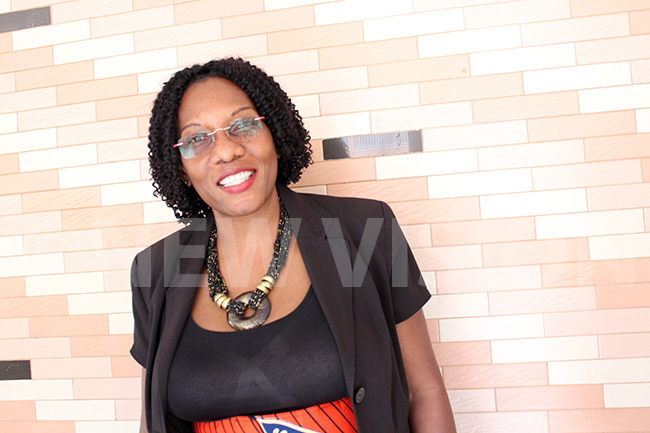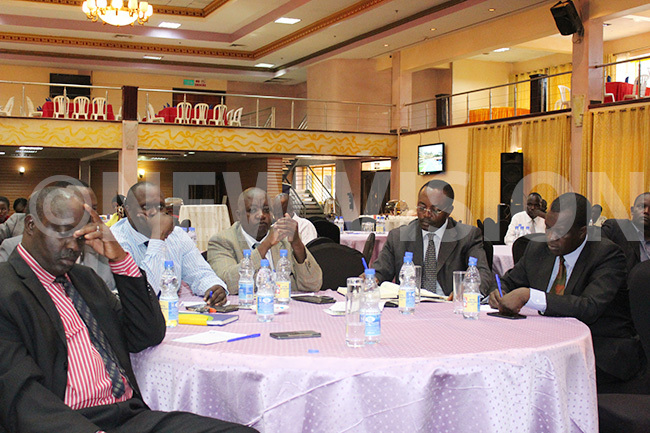Over 50 districts to receive grants for maternal, child health
Mar 02, 2019
The agreements will allow for the transfer of Results Based Financing (RBF) start up grants to health facilities, district local governments and municipalities.

KAMPALA - 51 districts are set to receive start up grants to boost service delivery. This comes after the Ministry of Health signed grant agreements with the Ministry of Local Government aimed at improving reproductive maternal and child health services in the country.
The agreements will allow for the transfer of Results Based Financing (RBF) start up grants to health facilities, district local governments and municipalities.
During the signing event that took place at Hotel Africana in Kampala on Thursday, Minister for health, Dr Jane Ruth Aceng, said the project will help to ensure that women, adolescents and children receive quality services at the facilities.
In attendance were the chief administrative officers, town clerks, district health officers, representatives from the medical bureaus, representatives from ministry of local government, ministry of finance, Office of the Prime Minister and development partners including World Bank.
 Dr Sarah Byakika, coordinator for planning at the Ministry of Health
Dr Sarah Byakika, coordinator for planning at the Ministry of Health
Meanwhile, the Government received financing from the International Development Association (IDA), the Global Financing Facility and the Swedish Government for implementation of the Uganda Reproductive Maternal and Child Health Service Improvement Project (RMNCAH).
John Ssengendo, the project coordinator said part of the financing is to be used to roll out RBF in 81 districts.
"In October last year, the ministry signed agreements with 21 RBF districts and startup funds totaling to sh2.9b were disbursed and now the 51 districts are in the second phase. The 28 are doing very well and people are receiving good services," she highlighted.
Annually, these districts will be receiving over sh37b to improve the quality of services in terms of ensuring that human resources and supplies are available and that patients are comfortable.
Also, women and children should be mobilided to utilise these services at health center IIIs and IVs countrywide.
Ssengendo urged the district management teams and leadership to support the project with verification and supervision of governance measures in place because most of the health facilities do not have the financial management and procurement capacity to utilise the finances.
"There are over 10 teams in the 51 districts to orient leaders on RBF. There will be a detailed training for the selected facilities. The money to be transferred will depend on what comes out of the assessment. It is estimated at sh3b," he announced.
Under the first phase, the Ministry of Health transferred start up grants worth to 322 health facilities, in Kampala Capital City Authority(KCCA), 27 local governments and nine municipalities," he explained.
Dr Sarah Byakika, commissioner for planning added that RMNCAH is expected to greatly reduce maternal mortality because it is designed based on the bottlenecks that were identified in the previous programmes that are related to maternal child health care services.
"The major issue has been inadequate financing at primary health care level. This project will help to improve on efficiency, quality and equity," she anticipates, adding that poor people will have access to quality services.
 Some of the district officials at the function
Some of the district officials at the function
Accountability
Since a lot of resources acquired through loans end up unspent, with this project, every quarter the Ministry working with district health management teams will verify and pay performance incentives for the quality and quantity of outputs.
This will be in areas of antenatal care, outpatient attendance, family planning, safe deliveries, post-natal care, immunization and referrals.
About the project
RMNCAH programme was approved by World Bank in August 2016 and by the Parliament in December 2016. An agreement was signed between the World bank and government in January 2017 but it was declared effective for implementation in May 2017.
The total financing of the project is $165m of which $30m is a grant from Global Financing Facility in support of every woman every child. $110m is a loan from World Bank and $25m is a grant from the Swedish Government.
Its major objectives include; to improve utilisation of health services with a focus on reproductive maternal and child health services in the target districts and to scale up birth and death registration services (BDR).
